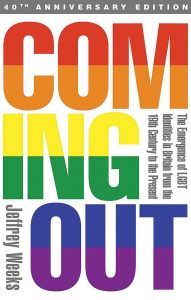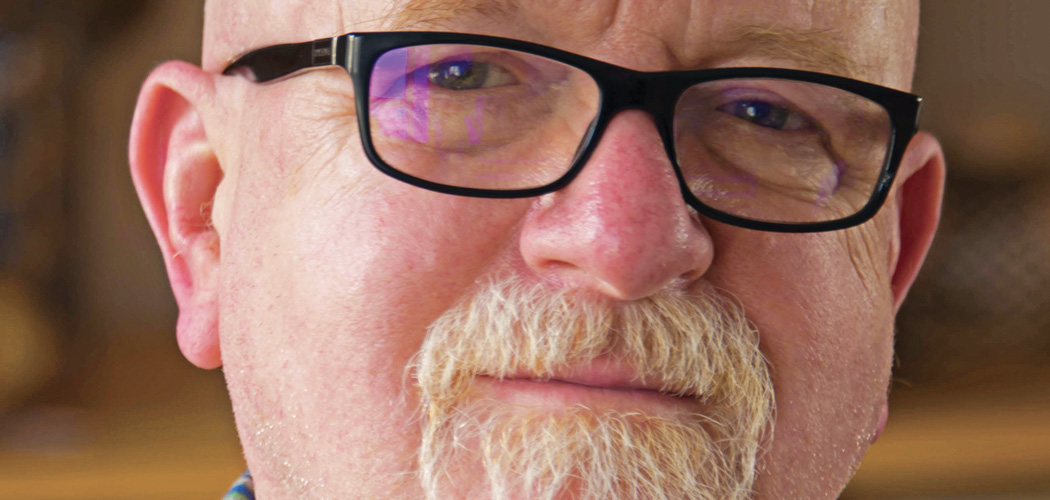This issue of Boyz is dated 27 July 2017, which marks exactly 50 years since the Sexual Offences Act 1967 received royal assent. The Act decriminalised homosexual acts in private between two men aged 21 and over. It also applied only to men living in England and Wales, and did not cover the Merchant Navy or the Armed Forces. It is, however, an important milestone in the fight for greater gay rights in the UK, as historian and author Jeffrey Weeks explains.
1967 was the summer of love. Its soundtrack was provided by the Beatle’s Sgt. Pepper album and John Lennon’s All You Need Is Love. London was still swinging. This was the year when the Sexual Offences Act partially decriminalised male homosexuality. It had taken a huge struggle to get reform through Parliament, but its leading supporter in the House of Lords, Lord Arran, issued an immediate dampener, urging those who had been in bondage to ‘show their thanks by comporting themselves quietly and with dignity’. Not much room for love here.
This downbeat advice reflected the limited nature of the reform. Male homosexuality in private was decriminalised, as long as no more than two people were present, both were over 21, neither of you were in the armed forces or merchant navy, and you didn’t live in Scotland or Northern Ireland. Homosexuality as such was not legalised, and prosecutions for public acts of indecency between men actually increased five-fold in the next few years. And, of course, change in the law did not affect lesbians or trans people at all.
I graduated from university in London in that summer of 1967. I was a boy from the South Wales valleys who slowly discovered the gay scene in London and had begun to find a circle of friends. I was politically aware and followed the debates about homosexual law reform. But its passage in late July 1967 almost passed me by. I was doing a summer labouring job back in the valleys, and my friendly mates never mentioned it. Nor did I. Like most of my fellow queers, I lived in two different worlds that rarely, if ever, communicated with each other. My gayness was completely separated from the rest of my life. The closet was deeply rooted in queer life and the 1967 reforms did little to change that.
Buggery between men had been illegal since the 16th century and carried the death penalty until 1861 – and after that a maximum sentence of life imprisonment. It was so draconian that increasingly juries had been reluctant to find people guilty. In 1885 a new offence of ‘gross indecency’ was introduced under the infamous Labouchère Amendment, carrying a prison sentence of two years, and this became a more effective template for prosecution of male homosexuality. It was the clause under which thousands of men had their lives ruined over the next 80 years, either directly through the courts or indirectly through blackmail – it became known as the ‘blackmailer’s charter’ – or through a generalised fear of discovery and exposure. It was the law under which Oscar Wilde was imprisoned in the 1890s and Alan Turing, alongside many others, had their lives destroyed in the 1950s.
Queer life carried on despite the legal situation, and many people, famous and obscure, fell in love, had sex, formed relationships and created viable ways of life. But all the time the law cast its shadow, for women who were not directly affected as much as for men. The law symbolised a deep hostility in British society towards homosexuality and gender nonconformity that forced a double life, self-hatred and a constant anxiety about exposure. A steady increase in prosecutions from the late 1940s, especially in London, signalled that prejudice was increasing rather than decreasing. Britain gained a reputation as one of the most puritanical and anti-gay countries in the world by the 1950s.
Yet there were signs of change. A series of scandals – most notably the prosecution of Lord Montagu and Peter Wildeblood recently dramatised in the BBC’s Against The Law – made homosexuality into a public issue. Was prison the best way of limiting and controlling homosexuality? ‘Would you lock an alcoholic in a brewery?’, the bisexual Lord Boothby famously asked. The Wolfenden Committee was set up by the government in 1954 to find a way through the mess. Three years later it came up with a policy that eventually shaped the 1967 reform.
It took ten years to get the law changed. That this happened was due in large part to the work of the Homosexual Law Reform Society, led by Antony Grey. Grey, like many of the workers and volunteers who led the campaign, was covertly gay, but the society presented itself as a respectable grouping of the great and the good, stuffed full of bishops, retired politicians, psychologists and writers. When it came to the crunch, the society did most of the work, but the kudos went to the (straight) politicians who pushed the law through parliament. It was done for us, not by us, and we should be suitably grateful.
The real change for me came not in 1967 but in 1970, with the emergence of the gay liberation movement, which made modern LGBT life possible. Coming out began to destroy the closet. It took until 1994 before there was any further law reform, when the age of consent was reduced to 18. It took another decade before the great wave of legal reforms occurred under the Blair-led Labour government, culminating in the Gender Recognition and Civil Partnership Acts. The years in between had seen the pain and anguish of the AIDS crisis, which fed into a vicious anti-gay backlash that culminated in the notorious Section 28, which banned the promotion of homosexuality in 1988. The road between 1967 and the achievement of formal equality and equal citizenship for LGBT people in the 2010s was long and erratic. The difference was that there was a new self confidence and public voice, rooted in an ever growing and flourishing LGBT world.
None of this would have happened without that first step in 1967. But from a historical perspective the reforms of that year look more like the end of an era than the start of something new. Fundamental change was to come with the a new sense of identity and consciousness after 1970. We were now doing things for ourselves, loudly and proudly – the beginning of a different world.

Jeffrey Weeks is a historian who has written widely about LGBT history. His pioneering book on LGBT politics and identity, Coming Out, has recently been republished in a revised and updated 40th anniversary edition by Quartet Books (quartetbooks.co.uk).








